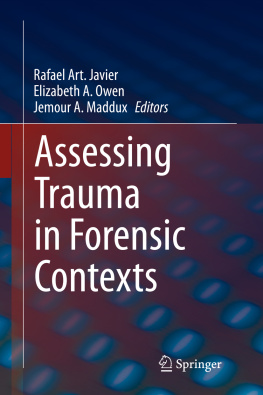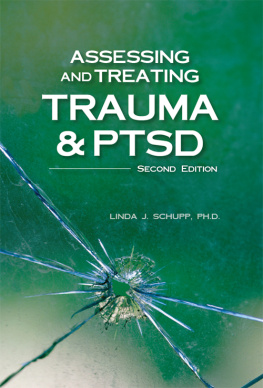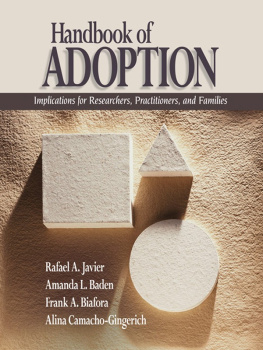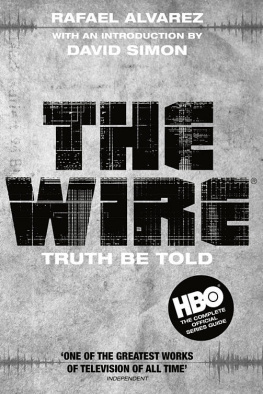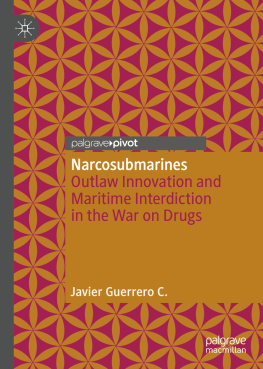Rafael Art. Javier - Assessing Trauma in Forensic Contexts
Here you can read online Rafael Art. Javier - Assessing Trauma in Forensic Contexts full text of the book (entire story) in english for free. Download pdf and epub, get meaning, cover and reviews about this ebook. year: 2020, publisher: Springer International Publishing, genre: Home and family. Description of the work, (preface) as well as reviews are available. Best literature library LitArk.com created for fans of good reading and offers a wide selection of genres:
Romance novel
Science fiction
Adventure
Detective
Science
History
Home and family
Prose
Art
Politics
Computer
Non-fiction
Religion
Business
Children
Humor
Choose a favorite category and find really read worthwhile books. Enjoy immersion in the world of imagination, feel the emotions of the characters or learn something new for yourself, make an fascinating discovery.
- Book:Assessing Trauma in Forensic Contexts
- Author:
- Publisher:Springer International Publishing
- Genre:
- Year:2020
- Rating:3 / 5
- Favourites:Add to favourites
- Your mark:
- 60
- 1
- 2
- 3
- 4
- 5
Assessing Trauma in Forensic Contexts: summary, description and annotation
We offer to read an annotation, description, summary or preface (depends on what the author of the book "Assessing Trauma in Forensic Contexts" wrote himself). If you haven't found the necessary information about the book — write in the comments, we will try to find it.
Assessing Trauma in Forensic Contexts — read online for free the complete book (whole text) full work
Below is the text of the book, divided by pages. System saving the place of the last page read, allows you to conveniently read the book "Assessing Trauma in Forensic Contexts" online for free, without having to search again every time where you left off. Put a bookmark, and you can go to the page where you finished reading at any time.
Font size:
Interval:
Bookmark:
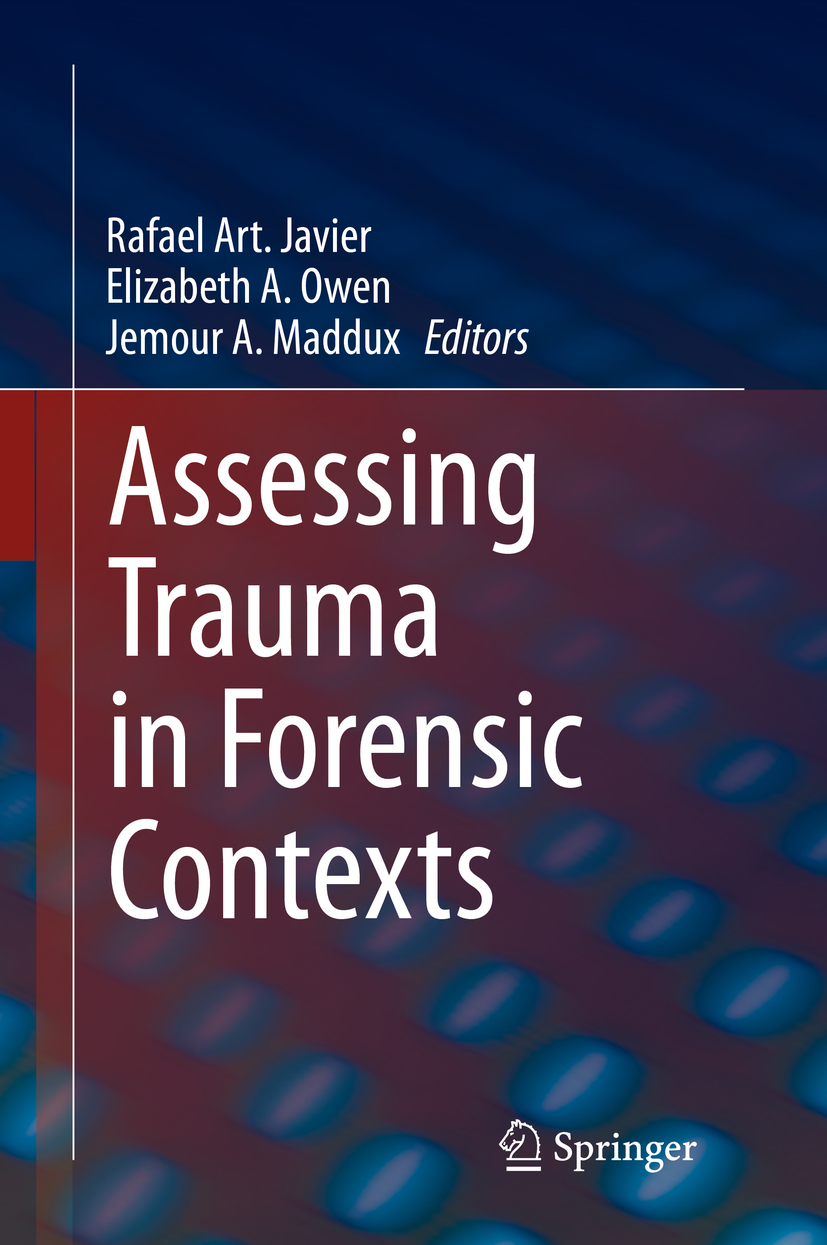

This Springer imprint is published by the registered company Springer Nature Switzerland AG
The registered company address is: Gewerbestrasse 11, 6330 Cham, Switzerland
Rafael Art. Javier
I dedicate this book to the NYSPA Forensic Division for providing me the opportunity to engage in this important topic and, also, to all those suffering the consequences of traumas in all its permutations
Jemour A. Maddux
For my wife, Ponnie, and children, Daniel, Isabel, and Ryan
Elizabeth A. Owen
To HP for always supporting me, even when I pushed you away
Thirty years ago, there was nothing (that is not hyperbole) in the legal literature that discussed trauma in the context of forensic psychology or psychiatry. Before 1991, there were but two cases that even mentioned both trauma and any aspect of forensic mental health.When I offered a course at New York Law School in the late 2000s on Trauma and Mental Disability Law, it wasto the best of my knowledgethe first such course ever offered at any US law school.
Times have changed. A simple WESTLAW search for 2019 alone
In an insightful article, Professors Sarah Katz and Deeya Haldar suggest that lawyers incorporate trauma-informed practice in their skill set. Trauma-informed practice recognizes the impact of trauma on systems and individuals. Trauma-informed practice ensures that clients have access to trauma-focused interventions during all routine practice. These interventions incorporate an assessment of trauma and trauma symptoms and endeavor to treat the consequences of traumatic stress. Instead of asking, What is wrong with you? a trauma-informed practitioner asks, What happened to you? (see Cucolo & Perlin, 2017, p. 324, discussing Katz & Halder, 2016). In this context, Professors Sarah Katz and Deeya Haldar have underscored, The trauma experiences of clients have a direct relationship to how they relate to their attorneys and the courts, because trauma has a distinct physiological effect on the brain, which in turn affects behavior in the short-term and long-term (Katz & Halder, 2016, p. 366).
Tardily, we have begun to realize, variously, the impact of posttraumatic stress disorder on persons who have been the victims of domestic violence and trafficking, and of veterans who have served in the recent wars in the Middle East (Perlin, 2015), on the traumatic outcomes of shaming processes in juvenile court matters (Perlin & Lynch, 2018),on how factors such as trauma may lead to behavior that results in a death sentence (Perlin, 2016), on how trauma from sexual violence may lead to psychiatric disability requiring long-term institutionalization (Perlin & Cucolo, 2017), and the need for trauma-informed care in mental health courts (Weinstein & Perlin, 2018). And all of these realizations call outbetter,screamoutfor greater awareness of these phenomena on the part of forensic witnesses.
This masterful book, edited by Rafael Art. Javier, Elizabeth Owen, and Jemour A. Maddux, is a refreshing, original, and thoughtful response to these needs, demonstratingbeyond any doubtwhy lawyers and forensic mental health professionals must be trauma-informed in all of their relevant work. This book does not simply fill a gap; it creates a high bar for any other authors who seek to enter this complex territory that spans the intersection of law and psychology. We are fortunate that they have chosen this path.
The book is extensive, and it is comprehensive. After an initial part, setting out a conceptual framework (one that focuses both on issues of law such as competency to stand trial and sentencing mitigation, and on issues of psychology (focusing on how trauma issues are at the heart of forensic developmental psychology, and on the criticallyunderconsidered issues that involve culture and linguistic differences in assessing trauma), it moves on to a host ofcivilforensic matters (many of which deal with issues that focus on children and juveniles, but also matters involving employment and injuries), and then on to a similar range ofcriminalmatters (in addition to the ones in the opening part noted above, including sexual offenses, juvenile delinquency, intimate partner violence, and, so especially important, the role of problem-solving (diversion) courts). Finally, in the concluding part, the chapter authors consider best practice models, case studies of criminal cases ripped from the headlines, and a return to a special kind of diversion court, a veterans court, in a chapter written by a NY state judge who presides over problem-solving courts.
Each section of the bookeach chapteris replete with challenges to the forensic mental health professional.In their introductory chapter, two of the editorsJavier and Owenhighlight one of these challenges: to be able to determine the extent to which an individuals earlier attachment experience is implicated in future responses to difficult conditions that become the subject of the assessment (p. xx). They note, accurately, that not everyone who experienced early trauma ends up involved in the justice system as defendants or victims (id.). But the statistics they share with us are unnerving: a child exposed to five or more significant adverse experiences before age 4 is15 times more likely than others to attempt suicide, and 34 times more likely to become an alcoholic
Font size:
Interval:
Bookmark:
Similar books «Assessing Trauma in Forensic Contexts»
Look at similar books to Assessing Trauma in Forensic Contexts. We have selected literature similar in name and meaning in the hope of providing readers with more options to find new, interesting, not yet read works.
Discussion, reviews of the book Assessing Trauma in Forensic Contexts and just readers' own opinions. Leave your comments, write what you think about the work, its meaning or the main characters. Specify what exactly you liked and what you didn't like, and why you think so.

